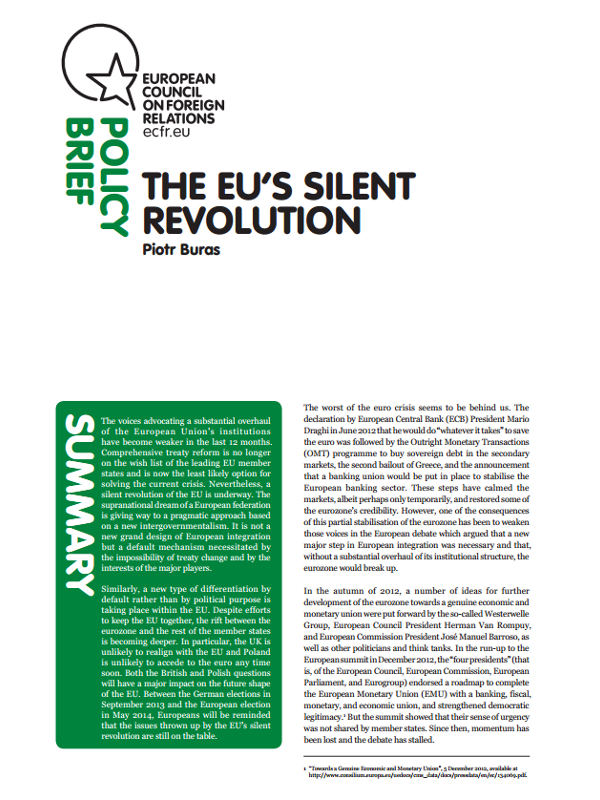
The EU’s silent revolution
More intergovernmentalism, more differentiation

Head, ECFR Warsaw
Senior Policy Fellow
Germany's EU and foreign policy; Poland in the EU; EU politics
Polish, German, English
Piotr Buras is the head of ECFR’s Warsaw office and a senior policy fellow at the European Council on Foreign Relations. His topics of focus include Germany’s EU and foreign policy, Poland in the EU, and EU politics.
Buras is a journalist, author and expert on German and European politics. Between 2008 and 2012 he worked as a columnist and Berlin correspondent for Gazeta Wyborcza, the biggest Polish daily newspaper. He started his professional career in the late 1990s at the Center for International Relations in Warsaw, one of the first Polish think-tanks. He continued his career at the Institute for German Studies at the University of Birmingham and at the University of Wroclaw (Poland). He was also a visiting fellow at the Stiftung Wissenschaft und Politik in Berlin. His recent book Moslems and the Other Germans. The Reinvention of the Berlin Republic was published in Polish in 2011.

More intergovernmentalism, more differentiation